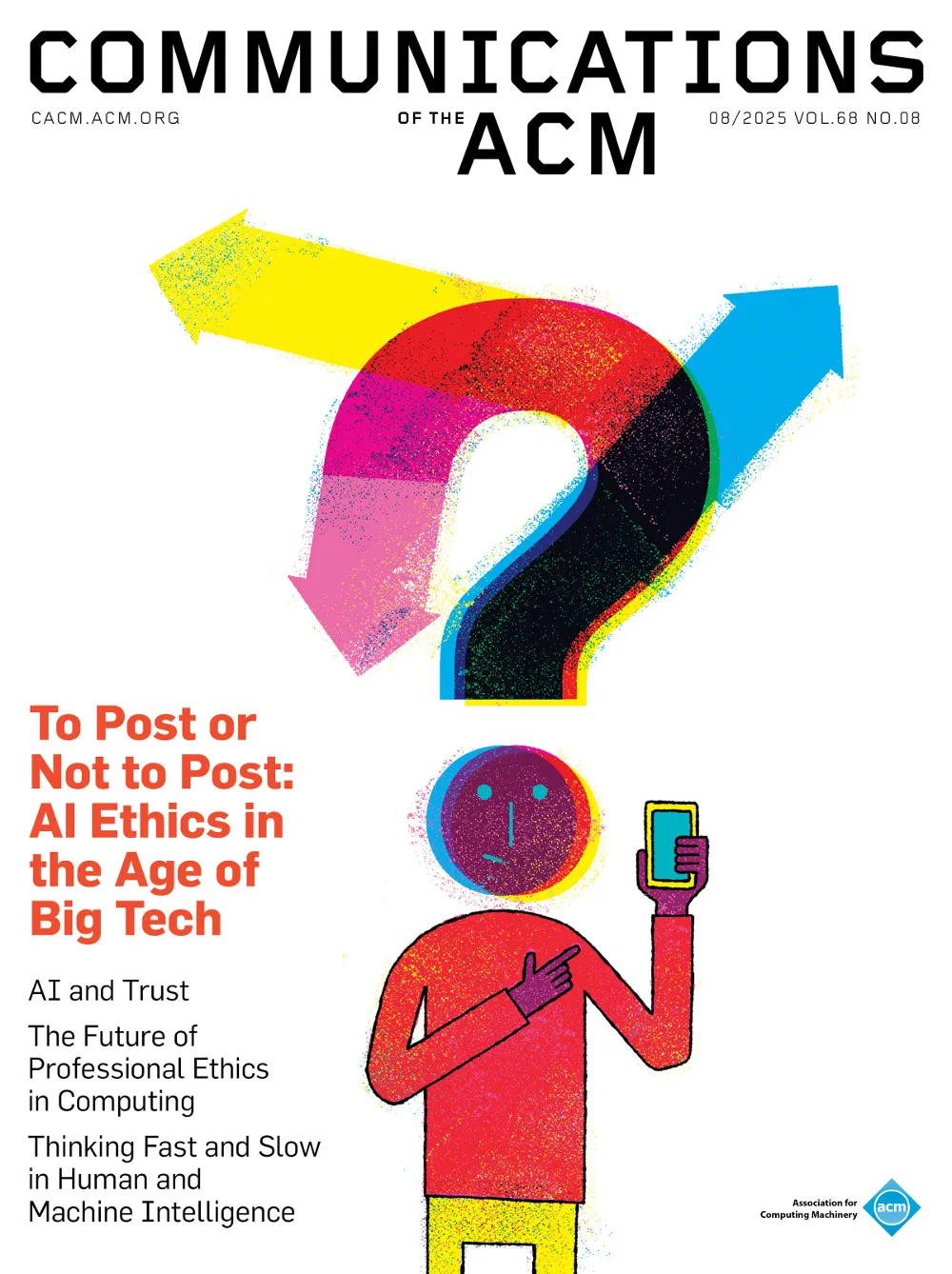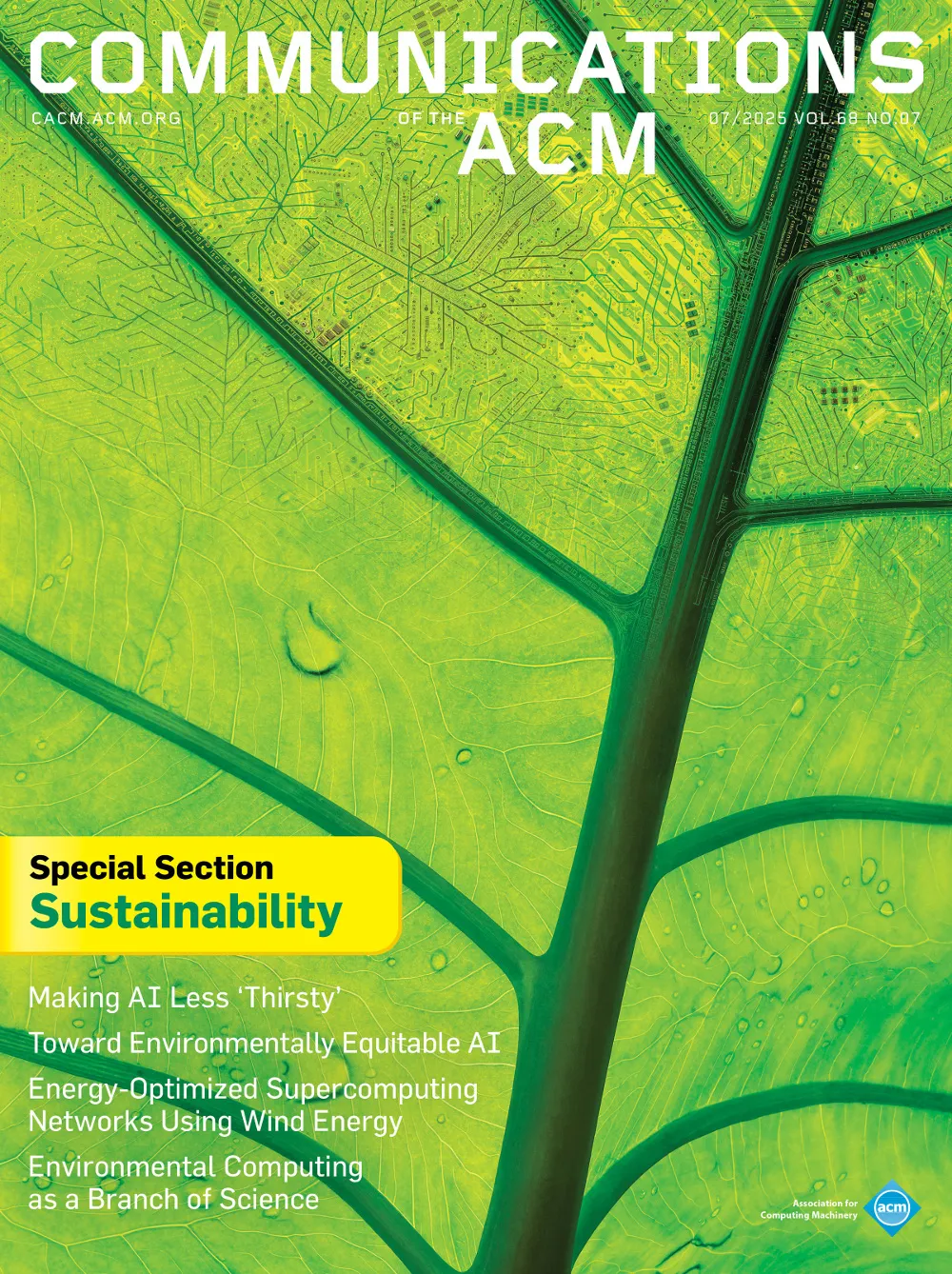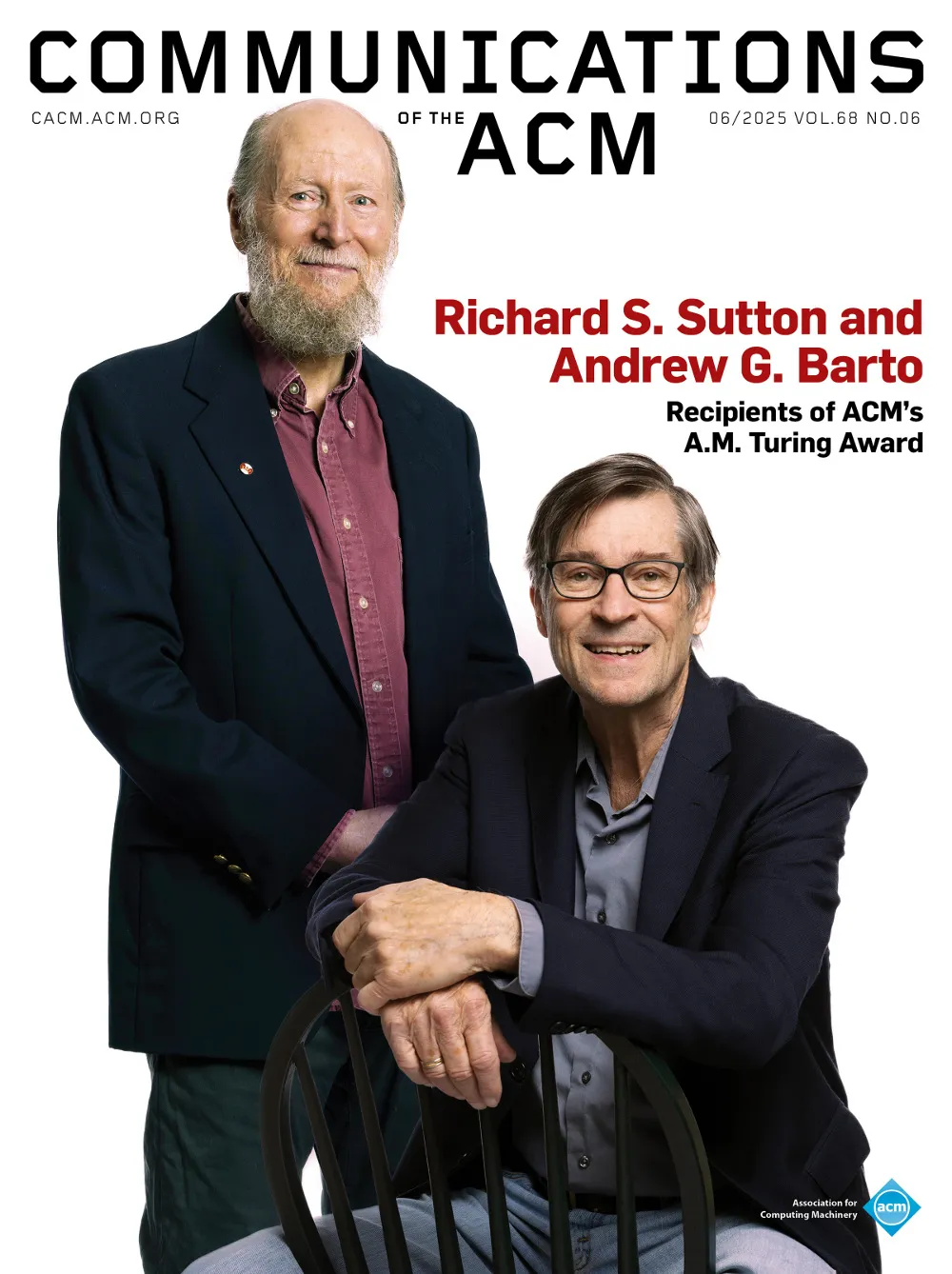Cracks in Open Collaboration in Universities
January 2020 - Vol. 63 No. 1

Features
Opinion Editor's letter
Universities and the interchange of scholars and students in international collaborations have long played an important role in knitting a fabric of human relationships and shared understanding. This fabric is fraying rapidly.
Opinion Departments
Publishing one's paper at a prestigious conference has become the standard way to build professional credentials, yet the dominance of conference publication comes at a cost.
In Search of the Shortest Possible Schedule
Bertrand Meyer considers how to speed up software engineering.
Multiplication Hits the Speed Limit
A problem "around since antiquity" may have been resolved by a new algorithm.
How the Internet Spans the Globe
The modern Internet is made possible by hundreds of thousands of miles of undersea cables.
Will Deepfakes Do Deep Damage?
The ability to produce fake videos that appear amazingly real is here. Researchers are now developing ways to detect and prevent them.
Opinion Law and technology
Increasing Automation in Policing
Seeking the delicate balance between civil liberties and policing public safety.
Opinion Technology strategy and management
‘Platformizing’ a Bad Business Does Not Make It a Good Business
Transaction platforms link third-party applications and services providers with users.
Opinion Historical reflections
New discoveries answer an old question.
Opinion Viewpoint
Ethics of Technology Needs More Political Philosophy
Incorporating considerations of reasonable pluralism, individual agency, and legitimate authority.
Opinion Viewpoint
A search for algorithmic answers returns unique results.
Blockchain Technology: What Is It Good For?
Industry's dreams and fears for this new technology.
Research and Advances Contributed articles
Dependability in Edge Computing
Edge computing holds great promise, and almost as many challenges in deployment.
Research and Advances Review articles
Techniques for Interpretable Machine Learning
Uncovering the mysterious ways machine learning models make decisions.
Research and Advances Review articles
Mastering Concurrent Computing through Sequential Thinking
A 50-year history of concurrency.
Research and Advances Research highlights
Technical Perspective: Is There a Geek Gene?
"Evidence that Computer Science Grades Are Not Bimodal" uses empirical methods to determine if belief in innate differences may explain why CS teachers see a bimodality in grades.
Research and Advances Research highlights
Evidence That Computer Science Grades Are Not Bimodal
There is a common belief that grades in computer science courses are bimodal. We devised a psychology experiment to understand why CS educators hold this belief.






















